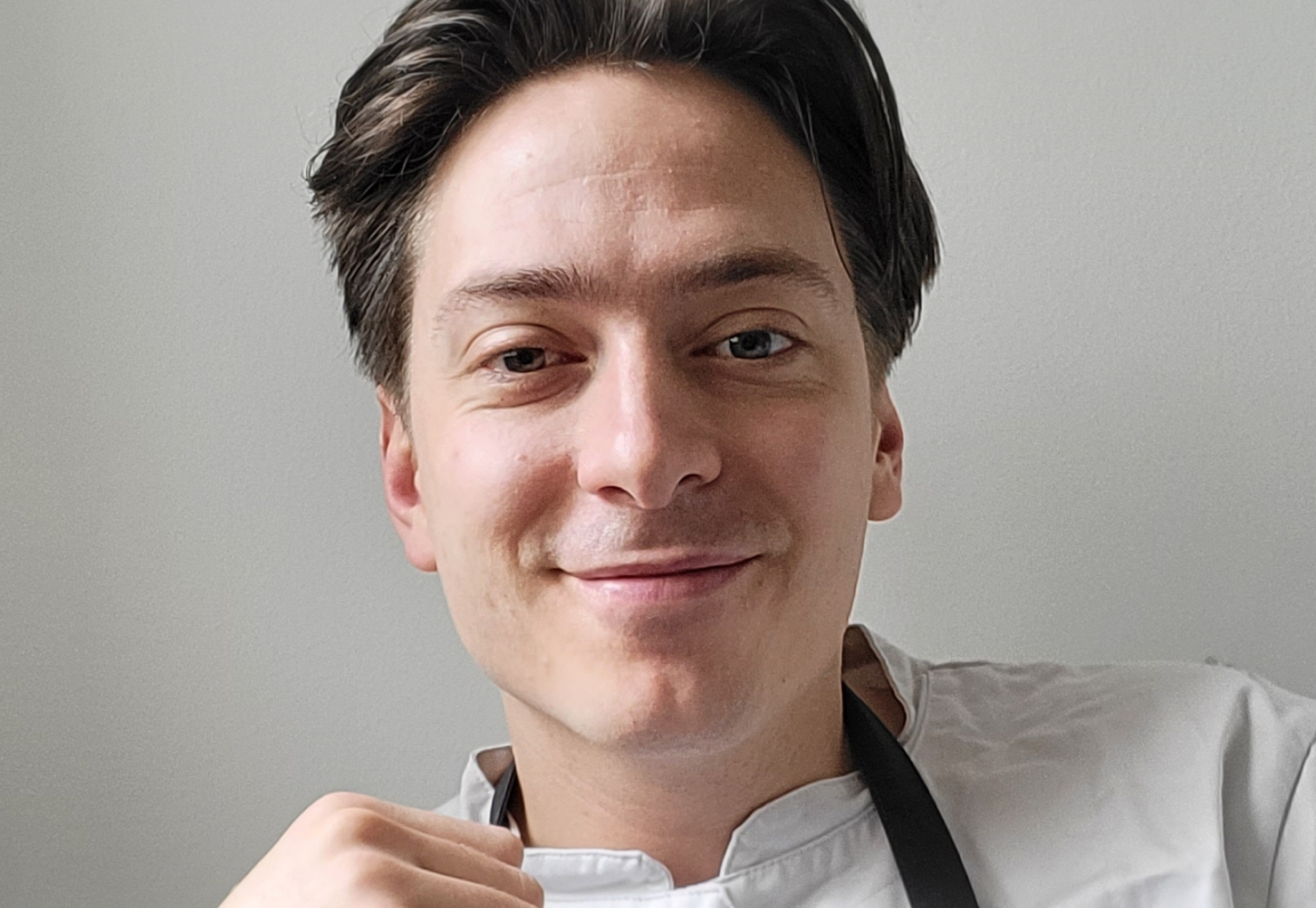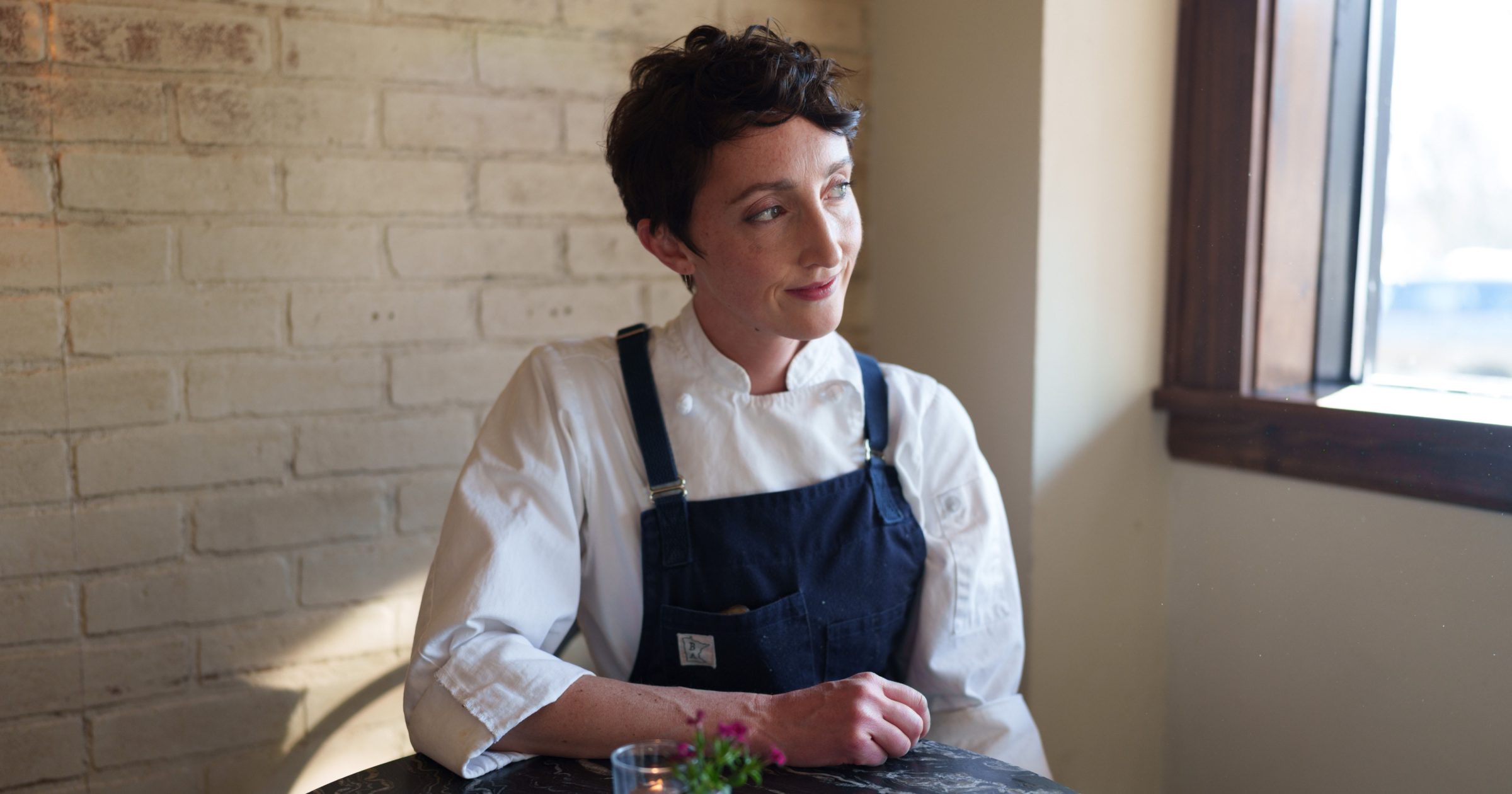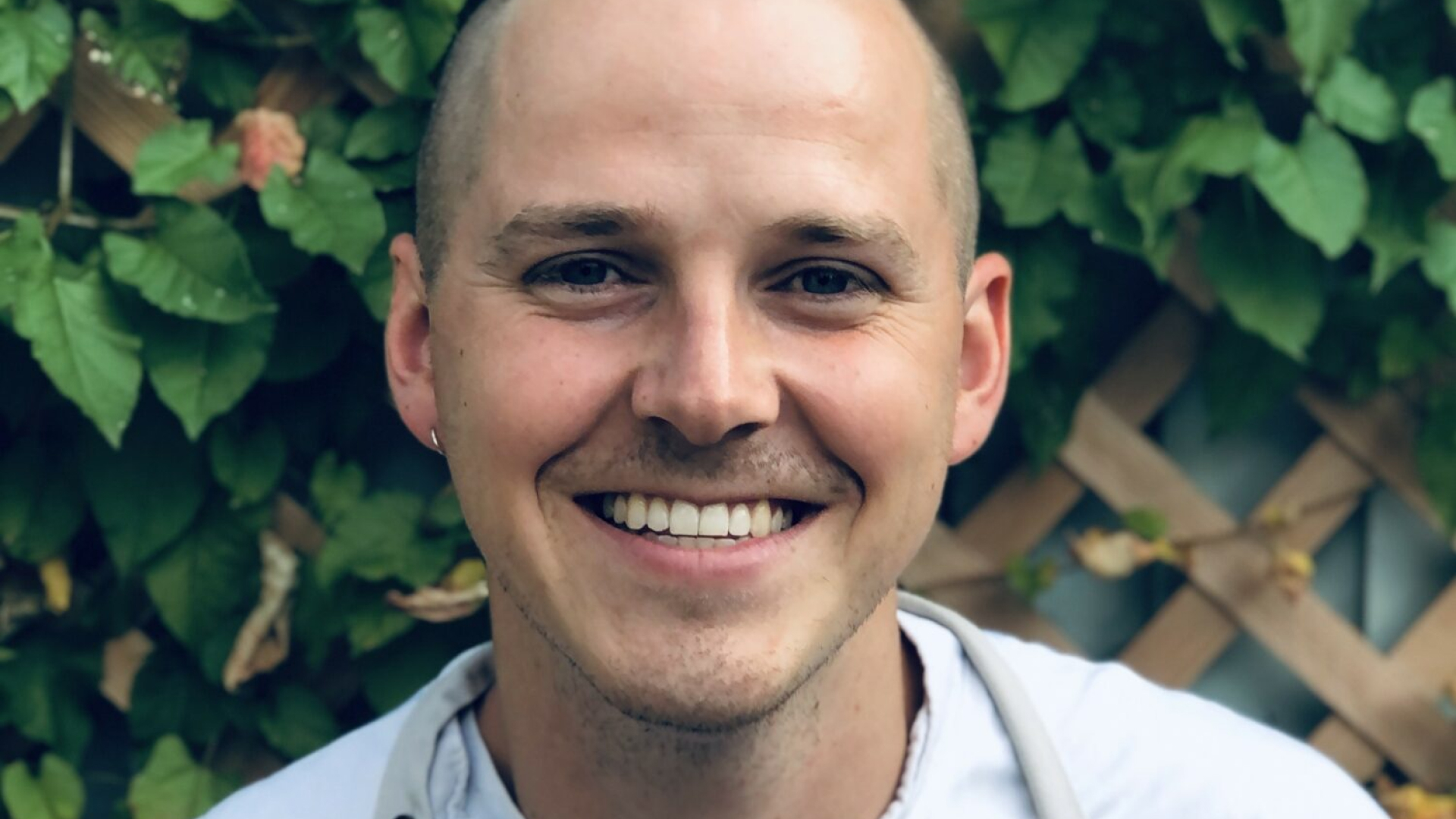5 Questions with Jon Polley
Jon Polley felt like a sell-out when, in need of a better salary and a saner schedule, he left his job at a hip Italian bakery to work in one of Pittsburg’s largest hospital canteens. But what initially seemed like a decidedly uncool career move soon proved to be the best thing he could have done—and not only for himself but for his city as well. Over the next seven years, Jon went from making small improvements in hospital meals—like introducing good coffee—to rolling out food waste policies in a dozen healthcare facilities across Pennsylvania. He has since found himself having to re-make his career again, but this month, he talks to us about what he calls his “awakening” at MAD Academy, and how, although the job may change, his identity as an ambitious, self-proclaimed “do-gooder in food” is here to stay.
You applied to MAD Academy a few times before joining us in 2021 for the Environment and Sustainability program. What drew you to Academy and did it meet your expectations?
I always had this kind of adventurous spirit when it comes to ingredients. And a lot of the chefs I grew up with, like Magnus [Nilsson] and René [Redzepi], were idols to me because of the way they pioneered ingredients and really captured their place in food. I wanted to be part of the club doing good in food, so I was instantly drawn to the Academy. And the whole experience was just mind-blowing – particularly the techniques around zero-waste cooking. One thing that will always stick with me was watching Matt Orlando make pasta from fishbone.
It’s now been seven years since you started working in healthcare hospitality, but what initially inspired you to make the switch?
I started working at the [Enrico Biscotti Co] bakery when I was just 19, and I really poured my heart and soul into that business. Eventually, we opened a production warehouse where we started selling a ton of online orders. I loved every minute of it, but as the manager of a small business, I often lost sleep worrying about making people’s paychecks—among many other things. And then I got married and had two sons. Your priorities change and, you know, healthcare in America isn’t great.
I was initially embarrassed about going into canteens—it felt a bit like selling out. Hospital food is often viewed as reheated mush, in various shades of brown, slapped on a plate. Even though that’s not the reality.
But it sounds like it ended up being a great move and where you really hit your stride as a sustainability advocate. What are some of the biggest initiatives you pulled off?
When I came back from MAD and became the Executive Chef at Magee-Womens Hospital (UPMC), that’s when it really went gangbuster. I wrote almost 200 new recipes that reflected seasonality, locality and were more plant-based. And we really took a hardline approach to reducing food waste. Eventually, I was asked to roll out these changes to other UPMC hospitals. The last year in my position [as Program Manager of the Center for Sustainability], was dedicated to forming new sustainability teams and projects at all the different locations.
One of the things I’m most proud of was working with 412 Food Rescue. When I started the role, it was only my former hospital donating and by the time I left, every hospital in Allegheny County (12) was donating. I had people who had been in the industry for 40 years come running up to me, super psyched, saying: “I have a whole cart of food that we can donate today!” Those are the little things that mean a lot; to know that I really got through to someone.
Sadly, you recently got let go from your job with UPMC due to restructuring. What was that moment like, and what have you taken away from the experience?
I had absolutely no idea it was coming. I was sitting in my office at 9:30 in the morning and got called to a meeting. I walked in and immediately thought ‘Oh, this doesn’t feel right’. This was just in April, so it’s very fresh. But the good thing is, now I know my calling and the impact I can have. How do we make sustainability something that’s for everybody? That’s affordable, doable, and understandable. And something that people feel like its theirs. There’s nothing I love more than giving an impassioned speech and asking, “Hey, why don’t you care about food waste? Why don’t you care about inefficiencies in the kitchen?” And just figuring out what’s inhibiting people from changing.
This is my fishbone pasta.
So, in the future, what exactly will go into your “fishbone pasta”?
In kitchens, one of the things that we learn really early is food safety. You learn all the critical control points to make sure there are no foreign objects or cross-contamination, and all these little things become ingrained into your brain. So, what if we treated food waste like this? States like California and New York are already doing great things with food waste bans, but the problem is people don’t know what to do with the waste.
I’ve started working with another chef on a training program to address this exact problem. It’s a holistic, employee-driven model, instead of the top-down version you typically see today. My dream is that it’ll be a free program in the form of a sort of ‘Choose Your Own Adventure’ book, like the ones we read as kids. Eventually, we want food waste managers to be fixed roles in kitchens, just like food safety managers.
Oh, and while this is all happening, I’m also looking for a job with good healthcare benefits!




